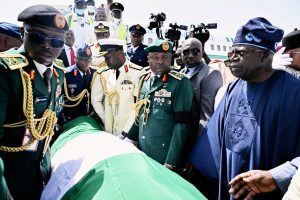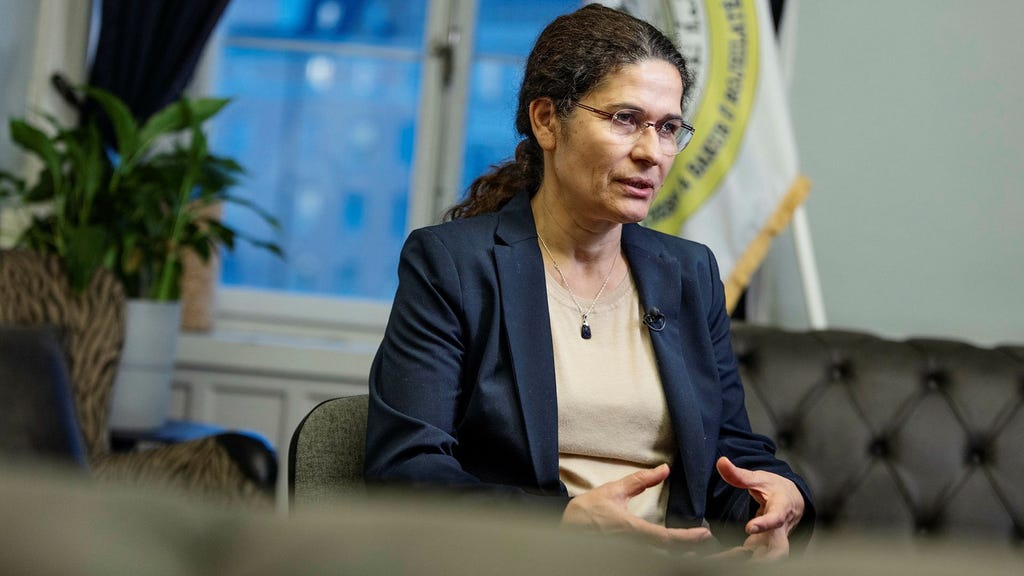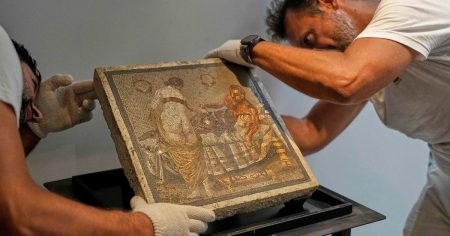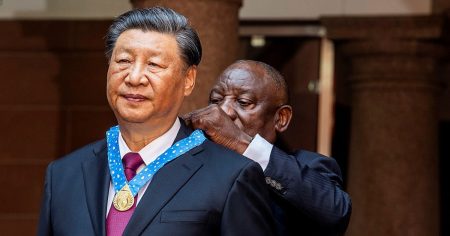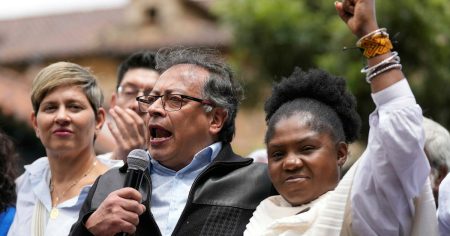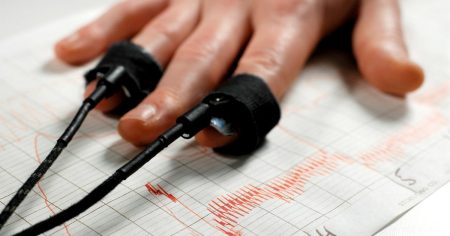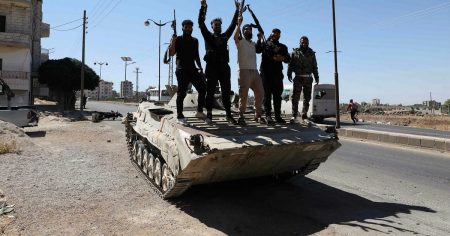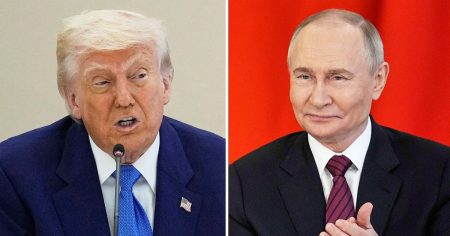The fall of Bashar al-Assad’s regime in Syria, a moment celebrated by many Syrians worldwide, has been met with apprehension by Ilham Ahmed, the Foreign Minister of the Kurdish-led Autonomous Administration of North and East Syria (AANES). While the new power brokers speak of peace, the future remains shrouded in uncertainty, raising concerns about the fate of the Kurdish people and the fragile stability they have achieved in the northeast region. Ahmed’s anxiety underscores the complex and volatile nature of the Syrian political landscape, where the transition to a post-Assad era presents both opportunities and significant risks for various stakeholders, particularly the Kurds who have carved out a degree of autonomy amidst the chaos.
The Kurdish population in Syria, historically marginalized and oppressed under Assad’s rule, has utilized the Syrian civil war as an opportunity to establish self-governance in the northeast. AANES, more commonly referred to as Rojava, has emerged as a relatively stable and democratic entity within the fractured Syrian nation. This self-governing region has implemented progressive social policies, including women’s rights and ethnic minority representation, marking a stark contrast to the authoritarianism of the previous regime. However, this newfound autonomy has not been without its challenges. The Kurds have faced threats from various actors, including ISIS, Turkey, and at times, the Syrian government itself. With Assad’s downfall, the future of Rojava hangs in the balance, dependent on the policies and intentions of the emerging power structure. Ahmed’s caution stems from the lack of clarity regarding the new leadership’s position on Kurdish autonomy and the potential for renewed conflict or a return to oppressive practices.
The transition to a post-Assad Syria will inevitably involve a renegotiation of power dynamics and territorial control. The Kurds, having established a functioning administration and demonstrated their commitment to stability, represent a significant force in this process. Their desire for recognition of their autonomy and inclusion in any future political settlement is paramount. However, the nature of the new governing body, its ideological leanings, and its relationship with other regional powers, such as Turkey, will heavily influence the prospects for a peaceful resolution of the Kurdish question. The intricate web of alliances and rivalries within Syria further complicates matters, making it difficult to predict the future trajectory of the country and the role the Kurds will play in shaping it.
Adding to the complexity, the involvement of international actors in the Syrian conflict introduces another layer of uncertainty. Different powers have pursued varying agendas, often at cross-purposes, further destabilizing the region. The United States, for instance, has provided military support to the Kurdish-led Syrian Democratic Forces (SDF) in the fight against ISIS, creating a temporary alliance of convenience. However, the long-term commitment of the US to the Kurdish cause remains ambiguous, raising concerns about potential abandonment. Similarly, Russia, a key backer of the Assad regime, views the Kurdish autonomous region with suspicion, potentially posing a threat to its continued existence. The interplay of these international interests will significantly impact the outcome of the Syrian transition and the future of Rojava.
The fall of Assad also raises the specter of renewed sectarian violence and instability. The Syrian civil war, fueled by deep-seated ethnic and religious divisions, could easily resurge in the absence of a strong central authority. The Kurds, as a distinct ethnic and religious minority, are particularly vulnerable in such a scenario. Their aspiration for self-determination could be perceived as a threat by other groups, leading to renewed conflict. The fragmented nature of the Syrian opposition and the presence of various armed groups further contribute to the potential for destabilization. Ensuring a peaceful transition and preventing further bloodshed requires a comprehensive and inclusive political process that addresses the grievances of all stakeholders, including the Kurds, and provides guarantees for their safety and rights.
Ahmed’s apprehension, therefore, is not unfounded. The transition period in Syria will be fraught with challenges and uncertainties. While the demise of the Assad regime signifies a potential turning point, the road to peace and stability remains long and arduous. The Kurds, having carved out a space of relative peace and self-governance amidst the chaos, now face a precarious future. Their ability to secure their autonomy, protect their people, and contribute to a more democratic and inclusive Syria will depend on the decisions and actions of the new power brokers, the evolving regional dynamics, and the engagement of the international community. The future of Rojava hangs in the balance, a testament to the complex and unpredictable nature of the Syrian conflict and the ongoing struggle for self-determination in the region.



